Last week the news broke that Time magazine selected Chinese Nationalist Party (KMT) Chairman Johnny Chiang (江啟臣) as one of the global top 100 emerging leaders, “individuals who are shaping the future.” Chiang, who will be 48 in a couple of weeks, heads a dying former authoritarian party that opposes independence for Taiwan and advocates annexing it to China, and is not so much shaping the future as trying to prevent it from happening.
Johnny Chiang? Can the reader name any of the half-dozen or so interim chairs the KMT has had since Ma Ying-jeou (馬英九) resigned in 2005?
Comically, the Time explanation touts Chiang’s drive to make the party attractive to youth, a perennial demand of the rank and file. Anyone remember SKII? “Members of Super KMT II, which takes its name from SKII, a kind of cosmetic which claims to help maintain an appearance of youthfulness, vowed to become key reformers in the quest to bring young people back to the KMT.” Yeah, that’s from… 2005.
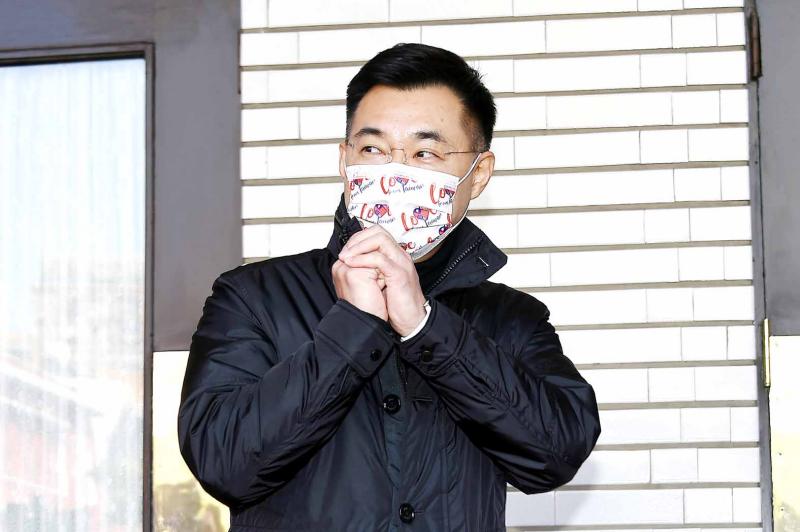
Photo: Aaron Tu, Taipei Times
As Courtney Donovan Smith calculated in a recent piece at Report.tw, Chiang’s youth drive has raised the under-40 contingent of KMT membership from three percent of overall party membership all the way to 3.5 percent. Apparently, young people would rather live in a free, democratic Taiwanese state, and support parties that advocate such outcomes.
Ironically, this “shaper of the future” does not perform well in the polls, and within his own party is less popular than several other figures, including recent hard-right returnee Jaw Shaw-kong (趙少康). A poll this month from SET has KMT supporters preferring Jaw to any other candidate for chairman in the upcoming election. At the moment, it seems he has a hard fight ahead just to retain the chairmanship, let alone “shape the future.”
Chiang’s selection automatically begs the question of who from Taiwan would have been a better selection for the “leaders” category among the five categories named by Time (answer: practically any forward-looking person of stature). It also forces us to ask what it means to “shape the future.”
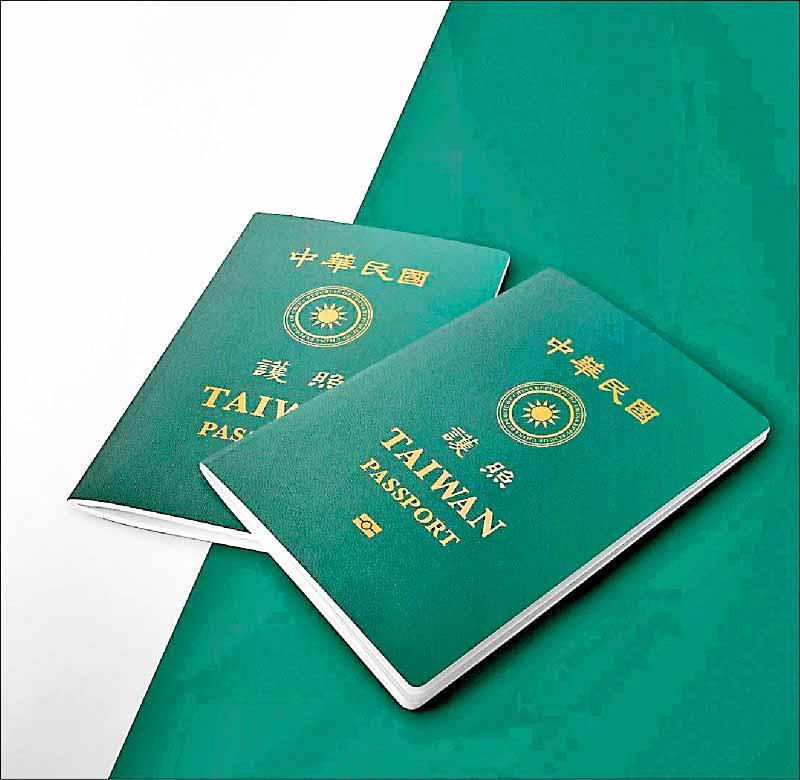
Photo: Chen Yu-fu, Taipei Times
Consider Freddy Lim (林昶佐), the former New Power Party (NPP) co-founder and star politician, who is also an internationally famed rock star (whereas Chiang, a legislator from a satellite town of Taichung, would be unknown were he not the chair of the KMT) and former head of Amnesty International in Taiwan. Lim is 44 this year, four years younger than Chiang. The party that Lim co-founded has pushed the ruling Democratic Progressive Party (DPP) into taking more progressive pro-Taiwan positions, thus affecting national policy.
Two recent examples of this, highlighted by Lev Nachman, a visiting scholar at National Taiwan University (NTU) who studies the nation’s small parties, are the recent proposals to change the passport design, and to force the KMT to change its emblem so it does not imitate the national emblem, a constant reminder of KMT colonialism and one-party rule. Nachman noted that these changes move the country away from its Republic of China (ROC) identity. These moves were opposed by Johnny Chiang’s KMT.
Or DPP politician Hsiao Bi-khim (蕭美琴), just a year older than Chiang. Currently Taiwan’s officially unofficial ambassador to the US, she is a major figure in the DPP and helps shape its foreign policy (and thus, stave off war in Asia). She is also internationally known, having served as vice president of Liberal International.
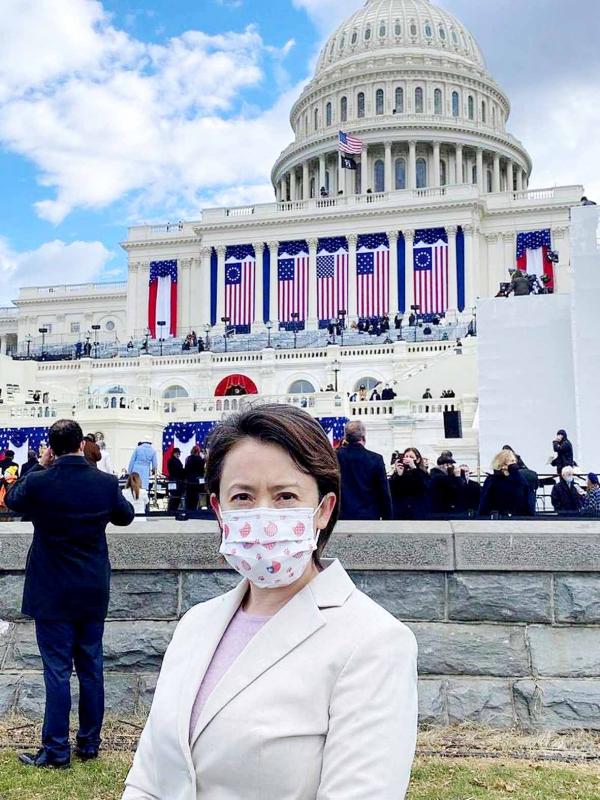
Photo courtesy of the Taipei Economic and Cultural Office in the United States
One could go on and on, listing individuals in business, politics and the arts. Indeed, Time’s listicle of 100 random individuals from around the world merely reflects the old tradition that history is the story of famous individuals, of the actions and activities of Bonaparte, Buddha, Bach and Bacon.
It is striking, by contrast, to survey the KMT leadership and note how few have any standing outside Taiwan.
But who really shapes the future of Taiwan? A few days ago United Kingdom Export Finance announced that it had provided £200 million (NT$7.8 billion) in financing for wind energy development in Taiwan. Wind energy has the potential to save lives lost to toxins from burning coal, reduce pollution and stop human heating of the earth. It will change the way local power institutions view the provision of energy. Whoever constructed and approved that finance deal to support wind power here “shaped our future” far more than Johnny Chiang ever will.
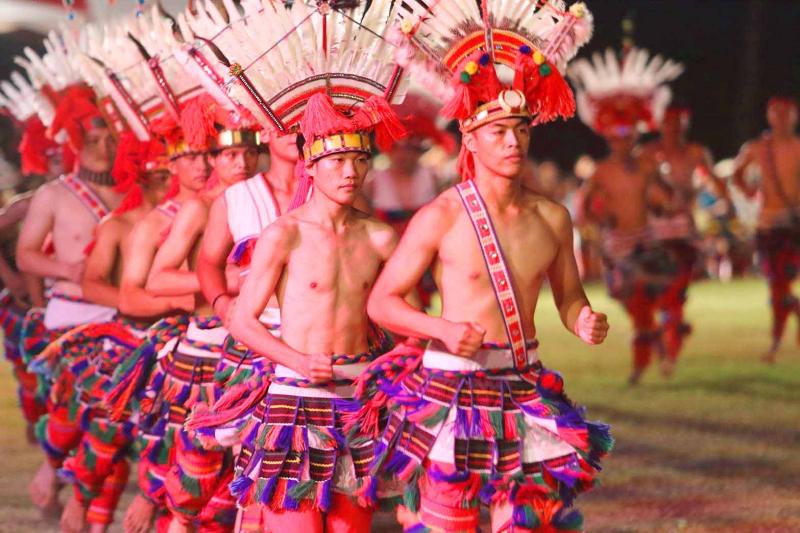
Photo: Aaron Tu, Taipei Times
Or maybe it’s the endlessly shifting shaping of society by emerging social trends. Over the last decade or so Taiwanese have evolved new ways to experience their identity and relationship to the land of Taiwan, with the round-the-island bike ride now an important rite of passage. Another example of this is the way Aboriginal arts and culture are influencing Taiwanese identity, recently profiled in a Washington Post report.
As Taiwanese differentiate themselves from China, they reach for what is different within Taiwan. This accentuation of difference is an old pattern dating back to the authoritarian era, when locals asserted Taiwanese language and culture against the faux “Chinese” identity of the KMT. Three decades ago it was a sudden vogue for betel nut, now Aboriginal culture is in.
Yet no single person can be identified with this restless, rowdy drive for new sources of identity.
Then there is the government. Nothing shapes the nation’s future more than public policy choice. The influence of any individual fades before the power of agencies like the National Development Council and the Council on Agriculture, and state-run businesses such as Taipower or Taisugar. At every level of government, young policymakers reshape the future, fostering an increasingly Taiwan-centered government as they rise through the bureaucracy.
Or fail to shape. Slow-motion crises like the industrial land crisis and the water crisis continue. Across the island fragile, unstable hillsides are cleared for a season or two of cash crops, the capitalist version of slash and burn agriculture. The nation has an ongoing shortage of nurses. Our fishing industry, an international scandal, runs on chum, slavery and the lash. These too shape a future, auguring an unpleasant hellscape of persistent resource shortages and pervasive social inequity.
Again, what individual plays Aeolus to all these turbulent winds of change?
Maybe it’s the media. Maybe it’s marketers. Maybe it’s researchers and scientists. Maybe it’s Wall Street. Maybe it’s all some kind of deterministic chaos, from which patterns emerge for no reason and our attributions of causation are like whiskey, a comfort in the darkness.
Finally, the selection of the chairman of the KMT as a “shaper of the future” also compels us to ask, more practically, why international media organs based in democratic states keep lending support to a retrograde pro-China party that dreams of annexing the island to China, an act that would end media freedom in Taiwan.
Let us hope that is a future Johnny Chiang never has a chance to shape.
Notes from Central Taiwan is a column written by long-term resident Michael Turton, who provides incisive commentary informed by three decades of living in and writing about his adoptive country.

March 10 to March 16 Although it failed to become popular, March of the Black Cats (烏貓進行曲) was the first Taiwanese record to have “pop song” printed on the label. Released in March 1929 under Eagle Records, a subsidiary of the Japanese-owned Columbia Records, the Hoklo (commonly known as Taiwanese) lyrics followed the traditional seven characters per verse of Taiwanese opera, but the instrumentation was Western, performed by Eagle’s in-house orchestra. The singer was entertainer Chiu-chan (秋蟾). In fact, a cover of a Xiamen folk song by Chiu-chan released around the same time, Plum Widow Missing Her Husband (雪梅思君), enjoyed more

Last week Elbridge Colby, US President Donald Trump’s nominee for under secretary of defense for policy, a key advisory position, said in his Senate confirmation hearing that Taiwan defense spending should be 10 percent of GDP “at least something in that ballpark, really focused on their defense.” He added: “So we need to properly incentivize them.” Much commentary focused on the 10 percent figure, and rightly so. Colby is not wrong in one respect — Taiwan does need to spend more. But the steady escalation in the proportion of GDP from 3 percent to 5 percent to 10 percent that advocates

From insomniacs to party-goers, doting couples, tired paramedics and Johannesburg’s golden youth, The Pantry, a petrol station doubling as a gourmet deli, has become unmissable on the nightlife scene of South Africa’s biggest city. Open 24 hours a day, the establishment which opened three years ago is a haven for revelers looking for a midnight snack to sober up after the bars and nightclubs close at 2am or 5am. “Believe me, we see it all here,” sighs a cashier. Before the curtains open on Johannesburg’s infamous party scene, the evening gets off to a gentle start. On a Friday at around 6pm,
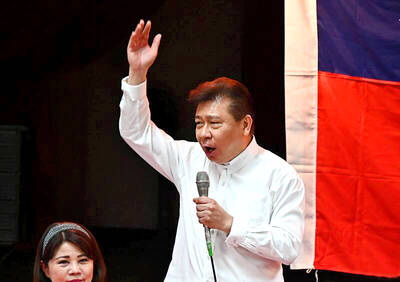
A series of dramatic news items dropped last month that shed light on Chinese Communist Party (CCP) attitudes towards three candidates for last year’s presidential election: Taiwan People’s Party (TPP) founder Ko Wen-je (柯文哲), Terry Gou (郭台銘), founder of Hon Hai Precision Industry Co (鴻海精密), also known as Foxconn Technology Group (富士康科技集團), and New Taipei City Mayor Hou You-yi (侯友宜) of the Chinese Nationalist Party (KMT). It also revealed deep blue support for Ko and Gou from inside the KMT, how they interacted with the CCP and alleged election interference involving NT$100 million (US$3.05 million) or more raised by the